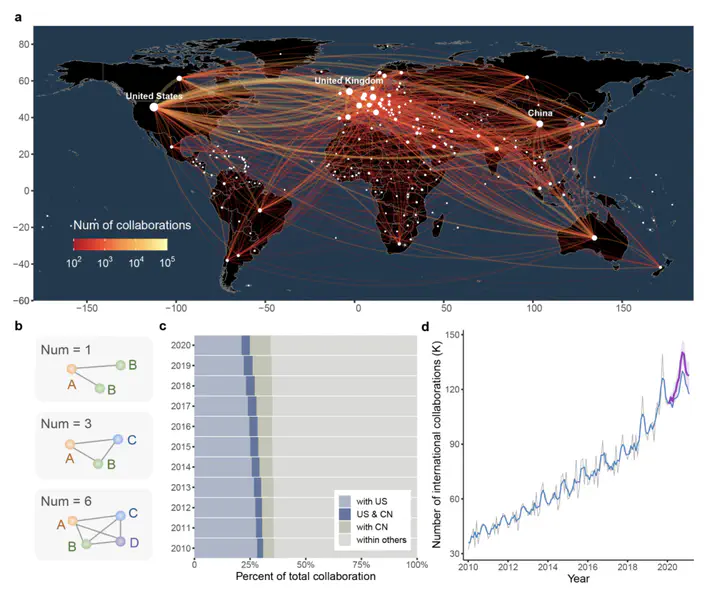The Heterogenous Impact of COVID-19 Pandemic on Global Scientific Collaboration
 Definition, spatial patterns, and evolution of international scientific collaboration
Definition, spatial patterns, and evolution of international scientific collaboration(In Review)
This work is completed with Zhifeng Cheng, Dr. Jianghao Wang, Dr. Yong Ge, Dr. Luoyi Fu, Dr. Xinbing Wang, and Dr. Chenghu Zhou.
Abstract
Scientific collaboration catalyzes knowledge diffusion and breeds innovation. With the rapid spreading of coronavirus disease 2019 (COVID-19), scientists’ work have been disturbed by the widespread implementation of governmental non-pharmaceutical interventions (NPIs). However, how the COVID-19 pandemic impacts scholars’ cross-country collaborative behaviors, especially for those not in the field of life science and biomedicine, remains unclear. Using metadata for 20 million publications of all disciplines worldwide covering the past decade, we developed a dataset of scientific collaboration to track its dynamics in the face of the pandemic. Leveraging difference-in-difference (DiD) models after striping the disturbance of peer-review cycles, we documented that international scientific collaborations have declined, on average, 12% by the end of 2020. Social sciences, developed countries, and large team research suffer more from the pandemic. Despite the decrease in quantity, the proportion of cross-country collaboration has increased instead by about 8% overall, coupled with considerable geographic and subject level heterogeneity. In epidemiology research, developing countries diversify their collaborations with countries from both Global North and Global South, which eases the inequality in scientific community. Considering that the COVID-19 pandemic may sustain in the near future, this retrospective study provides empirical evidence supporting scientific community intervention and governmental policymaking to coordinate scientists’ cooperation sustainably and efficiently.